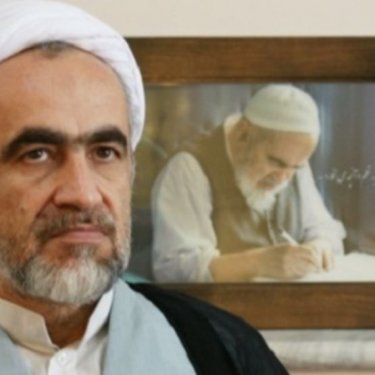Ahmad Montazeri gets 21-year jail term as part of bid to suppress history

Reporters Without Borders (RSF) condemns the 21-year jail sentence passed on website editor Ahmad Montazeri for posting an audio recording that shed light on one of the darkest periods in Iran’s modern history, a wave of executions of political prisoners in the 1980s.
Montazeri, who manages the website of his father, the late Ayatollah Hossein Ali Montazeri, was finally sentenced by Iran’s special court for clerics on 27 November after a trial that was held behind closed doors and without a defence lawyer on 19 October.
The court sentenced him to ten years in prison for endangering state security, ten years for publishing a “classified audio recording” and another year for anti-government “propaganda.” Montazeri told journalists he would appeal against the sentence, which he said had been imposed on the court’s judge by the intelligence services. He also denied that the recording was classified.
The recording, in which Ayatollah Hossein Ali Montazeri could be heard talking on 14 August 1988 with the members of a special commission appointed by then
Supreme Leader Ayatollah Ruhollah Khomeini, triggered a political and media earthquake when posted online on 9 August.
This Tehran-based commission and similar commissions in the rest of the country were given the job of interrogating political prisoners who had already been given jail terms by revolutionary tribunals.
Complying with a fatwa (religious decree) issued by Ayatollah Khomeini in the summer of 1988, these commissions imposed death sentences on thousands of political prisoners after interrogations that often lasted no more than a few minutes.
In the recording, Ayatollah Motazeri can be heard to condemn these executions, describing them as “the most terrible crime to have been committed under the Islamic Republic” and telling the commission’s members, “It is you, sirs, who carried it out, and your names will be registered as criminals in Iran’s history.”
The day after it was posted, the recording was deleted from the website at the intelligence ministry’s request and, three days, later, Ahmad Montazeri received a summons from the special court for clerics, a court that is completely unconstitutional.
As a result of the recording’s release, senior regime officials for the first time took a public position on these mass executions of political prisoners on Ayatollah Khomeiny’s orders, which until now have been a taboo subject in Iran.
Some of the members of the commission now hold senior positions. They include Mostafa Pour-Mohammadi, the justice minister; Hossien Ali Nayeri, the head of the Supreme Council of the Magistracy; and Ebrahim Reissi, a former prosecutor general who is close to the current Supreme Leader, Ali Khamenei.
Read the joint RSF-Human Rights Watch press release on Mostafa Pour-Mohammadi.
One of the Islamic Revolution’s theoreticians, Ayatollah Montazeri was Ayatollah Khomeiny’s heir apparent until removed from positions of influence in March 1989 as a result of his revelations about the executions of political prisoners.
His website, which cannot be accessed from within Iran, is often updated with reports about religion and articles by him and his associates, which are critical of the official line on Islam taken by Ayatollah Khamenei and the regime.
Iran is ranked 169th out of 180 countries in RSF’s 2016 World Press Freedom Index.



